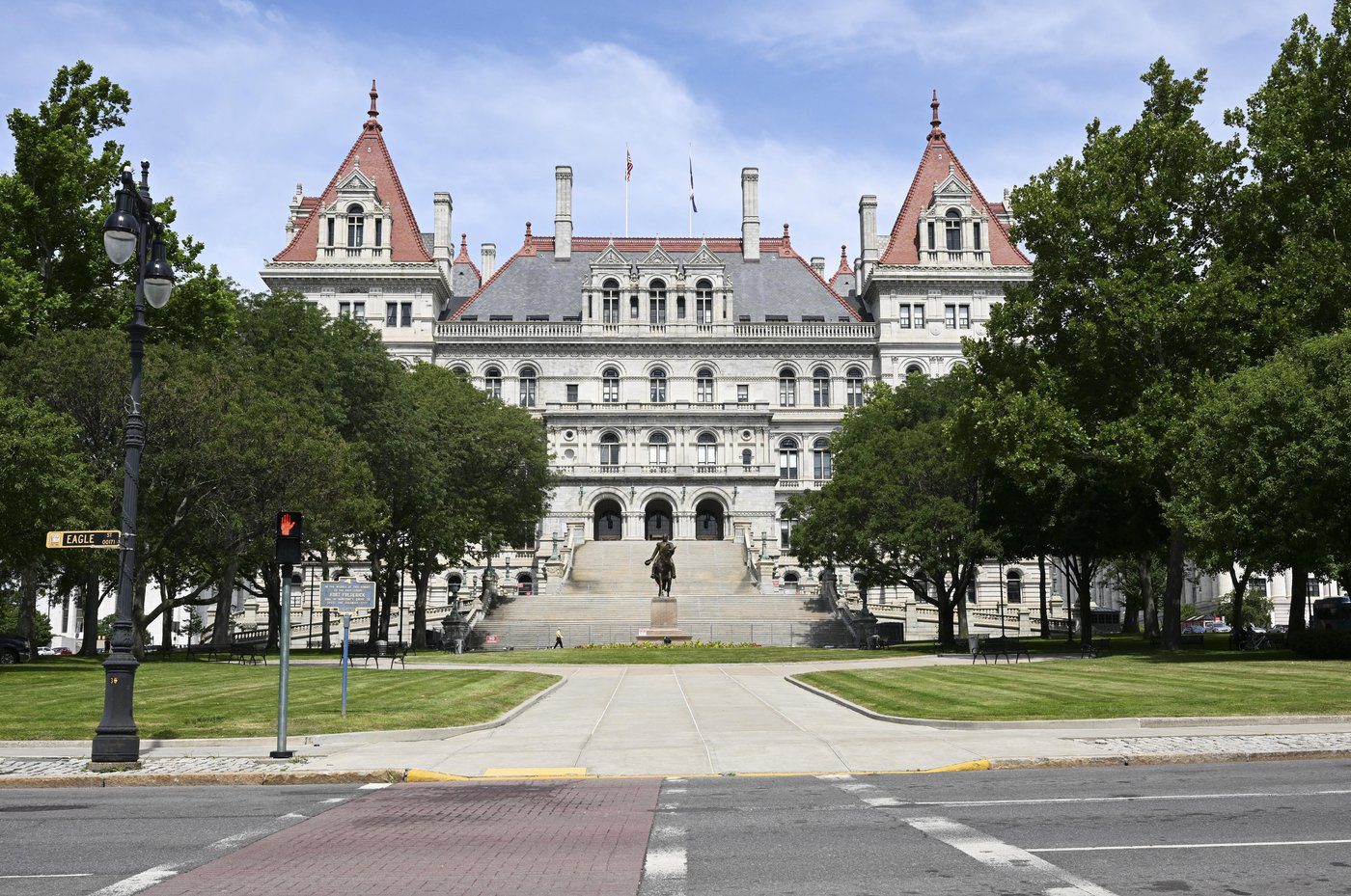ALBANY, N.Y. (AP) — A proposal introduced in the New York Legislature on Thursday could make it a crime for people to wear face masks to harass or threaten someone.
The bill would create the crime of “masked harassment” under the state’s existing harassment laws and contains several exemptions for people who wear masks for medical reasons or during cold weather, among other carve outs.
State Sen. James Skoufis, a Democrat who sponsored the bill, said his intention is to create a law that will allow law enforcement to go after people who wear masks to intimidate or threaten others, rather than trying to establish a widespread ban on face coverings.
His bill would make it a misdemeanor for a person to wear a mask “for the primary purpose of menacing or threatening violence against another person or placing another person or group of persons in reasonable fear for their physical safety.”
Skoufis said he does not want the proposal to be used to target peaceful protesters, who in many cases wear masks or other face coverings to hide their identities to avoid legal, personal or professional repercussions.
But Allie Bohm, a senior policy counsel at the New York Civil Liberties Union, said the proposal’s language is too vague and could result in selective enforcement against people expressing free speech rights.
“We’re going to get into a a lot of he-said-she-said trying to intuit people’s intentions,” Bohm said. “People do have a right to protest, and that’s true whether or not we agree with their messages.”
It is not clear how the bill will fare in the state Legislature, which is controlled by Democrats. The offices of the Democratic leaders of the Senate and Assembly did not immediately return emails seeking comment on the proposal.
Gov. Kathy Hochul, a Democrat, last year floated a potential mask ban on the New York City subways over concerns that people were shielding their identities while committing antisemitic acts. At the time, the idea drew strong pushback from civil liberties groups and from others who pointed out that masks are common on the subways because of concerns about poor air quality and COVID-19.
Hochul said this month that she was still open to considering legislation “that says if you commit a crime while wearing a mask, there should be enhanced penalties.”
New York had a law that banned face masks in public that was passed in the 1800s in response to anti-rent protests, and resulted in criticism that it was selectively enforced during various protests since it was enacted. That law was suspended during the coronavirus pandemic when face masks were mandated in an effort to stop the spread of the virus.
A conservative suburban county on Long Island last year passed a law banning face masks in public in response to what were called antisemitic incidents since the Oct. 7 start of the Israel-Hamas war, with exceptions for medical or religious purposes. A pro-Palestinian protester wearing a keffiyeh scarf was charged with violating the law shortly after it was passed.
There have been hundreds of pro-Palestinian demonstrations in New York after the war between Hamas and Israel began in October. The demonstrations have overwhelmingly been peaceful, though mask-wearing is very common among participants who are wary of police surveillance or other repercussions.
Anthony Izaguirre, The Associated Press








